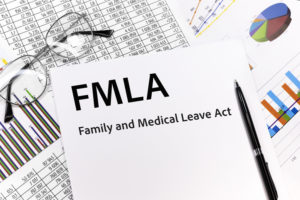Federal employees, like employees in the private sector, are entitled to “job-protected” leave under various circumstances. The Family and Medical Leave Act (FMLA) provides this protection to ensure that employees who need time off from work (for qualifying reasons) are not at risk of losing their jobs while dealing with challenging family and medical circumstances.
But, while the FMLA provides job-related protections for federal employees who assert their legal rights under the statute, these protections are not absolute. So, what does it really mean to take “job-protected” leave as a federal employee?
Understanding “Job-Protected” Leave Under the FMLA
Taking job-protected leave under the FMLA does not mean that federal employees are guaranteed a job when they are ready to return to work (or when their job-protected leave runs out). If an employee is subject to termination for reasons unrelated to his or her decision to take FMLA leave, the employee can still lose his or her job.
For example, if you are subject to a pending disciplinary action, taking FMLA leave does not serve as a shield against being fired (or facing other employment-related discipline). Similarly, if your federal employer downsizes and eliminates your position, the fact that you are on FMLA leave when this happens does not mean that you are still entitled to a job.
So, what does the FMLA protect? When you take FMLA leave as a federal employee, you must have the opportunity to return to the same job or an “equivalent job” upon your return (subject to the caveats we just discussed). This is important because it means that you aren’t necessarily guaranteed placement in your old position when you go back to work—although the U.S. Department of Labor (DOL) notes that “[a]n employee should usually be able to return from FMLA leave to their original schedule and work location.”
To qualify as “equivalent” for FMLA purposes, an alternative job must be “virtually identical to the employee’s original job in terms of pay, benefits, and other employment terms and conditions.” Among other things, this means that the job must entail equivalent:
- Authority and status
- Compensation
- Duties
- Opportunity for overtime
- Responsibility
Another important aspect of job-protected leave under the FMLA is that federal employees are entitled to any unconditional pay increases and other benefits they would have been entitled to receive had they not taken leave. For example, if you are eligible for a raise while you are on FMLA leave, your compensation rate must reflect this raise upon your return.
Taking “Job-Protected” Leave Under the FMLA as a Federal Employee
If you are eligible to take job-protected leave under the FMLA, you cannot simply tell your employer that you aren’t coming in for the next 12 weeks. There is a process you need to follow to ensure that you receive the job-related protections that the FMLA affords. Among other things, this process includes:
- Providing at least 30 days’ advance notice of your intent to take FMLA leave (unless you are dealing with an emergency, in which case you must provide notice “as soon as is practicable;” and,
- Complying with your federal employer’s request (if any) for a medical certification.
When seeking to take leave, it is important to specifically mention that you intend to take advantage of the benefits afforded to federal employees under the FMLA. While this isn’t strictly required, it will help ensure that your request is handled appropriately—and it will help establish your legal rights in the event that your federal job isn’t properly protected.
What Happens if You Don’t Receive the FMLA’s Job Protections?
Let’s say that you qualify for job-protected leave under the FMLA, and you do everything necessary to secure the protections that the statute affords. What happens if you don’t have a job when you try to return to work?
Just like employers in the private sector, federal employers can be held responsible for violating the job protections afforded by the FMLA. If you are improperly denied reinstatement or placement in an equivalent job, you can—and should—hire a lawyer to help you secure the protections to which you are legally entitled. Depending on the circumstances, this may involve being placed in the same or an equivalent job, or it may involve seeking damages or other remedies. An experienced federal employment lawyer will be able to explain your options and help you choose the option that makes the most sense for your individual circumstances.
What if You Need More than 12 Weeks of Job-Protected Leave?
In most cases, the FMLA provides federal employees with up to 12 weeks of job-protected leave for qualifying family and medical circumstances (military caregiver leave can be extended up to 26 weeks). So, what happens if you need more than 12 weeks to deal with your situation at home?
First, you will want to make sure that you (and your federal employer) are calculating your 12-week leave period correctly. For example, federal holidays occurring during FMLA leave do not count toward the 12-week period. Additionally, if you take your FMLA leave intermittently, you will want to make sure you get credit for all of the days you work between your leave periods.
Second, you may have options available besides relying on the FMLA. For example, if you took medical leave for a condition that now causes you to be disabled, you may be entitled to additional leave as a “reasonable accommodation” under the Rehabilitation Act. There are other possibilities as well—and here too, an experienced federal employment lawyer can help you choose the best path forward.
Questions? Contact Us for a Confidential Initial Consultation
Do you have questions about your right to job-protected leave as a federal employee? If so, we invite you to contact us for more information. To schedule a confidential consultation with a federal employment lawyer at The Law Firm of J.W. Stafford, please call 410-514-6099 or tell us how we can reach you online today.

